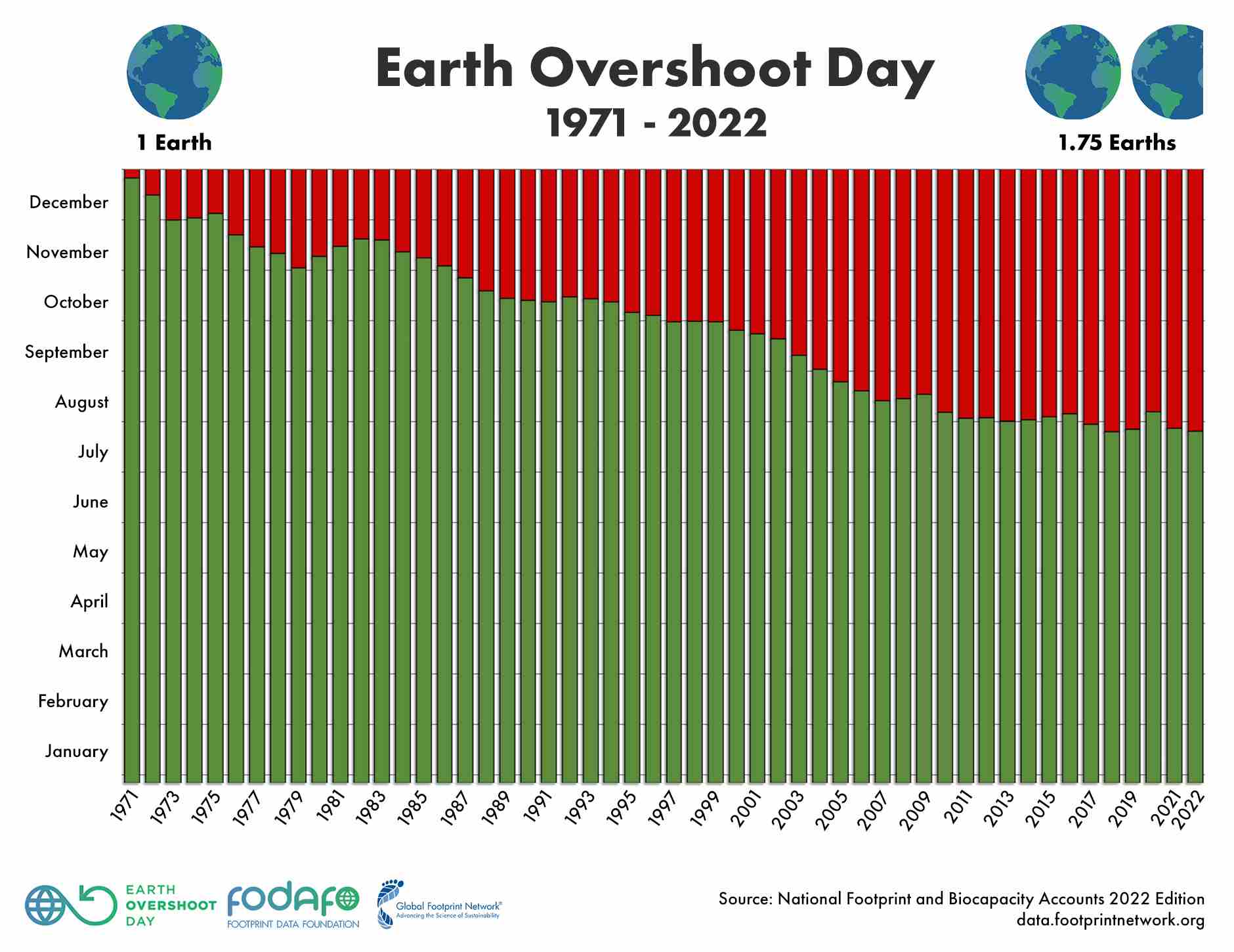Thessaloniki gets ready for its metro launch in November
The underground rapid transit lines have been under construction for almost two decades due to various project delays
 TheMayor.EU logo
TheMayor.EU logo You won’t find it on your calendar and ideally, it should not even exist
Earth Overshoot Day falls on 28 July this year, a day earlier than last year. Marked by the international research organization Global Footprint Network, this initiative aims to bring attention to the impact that we as a population are having on Earth’s resources. In other words, today we have already used up all the resources that it takes for the planet to regenerate in one year.
Humans catch more fish and cut down more forest than the earth has available - to name just a few examples. In fact, we would have to have 1.75 Earths available to be in balance with nature. Back in 1970, for comparison, humanity used up its needed resources exactly in one year.
Bo Øksnebjerg, the secretary general of the WWF World Nature Fund, illustrates the resource footprint in another way:
“We are taking more from the planet than it can regenerate. We have 100 kroner (Danish currency) in nature's account, but we spend 170 kroner. And we do that year after year after year. If we continue in this way, it will result in food crises, water shortages and make us even more vulnerable to extreme weather phenomena and natural disasters. Therefore, there is no way around it: In the coming years, we must give more back to nature than we take. Otherwise, it will go wrong".
In 50 years, Earth Overshoot Day has moved five months reflecting the growth of population, growing economy and industrialization, all of which demand more resources from a finite planet.

Here's how the Earth Overshoot Day has been moving earlier in the year in the past half-century. Source: Global Footprint Network
However, there is a big difference in the ecological footprint that different countries leave on our planet. Countries such as Indonesia and Jamaica have some of the lowest footprints in the world, while Luxembourg, on the other hand, is in the most resource-demanding group of the world's countries.
Nevertheless, how much a country consumes and regenerates is not just a question of how developed it is. Smaller countries, for example, reach their national Overshoot Days earlier because the resources in their territories are limited.
Here are the top 10 countries in the world with the largest footprint:
From 2021 to 2022, the total ecological footprint has increased by 1.2 per cent, while the total biocapacity has only increased by 0.4 per cent.

The underground rapid transit lines have been under construction for almost two decades due to various project delays

Now you can get your wine in Talence by paying directly in Bitcoin

That’s because the state has to spend money on updating the railway infrastructure rather than subsidizing the cost of the popular pass

Rethinking renewable energy sources for the urban landscape

The examples, compiled by Beyond Fossil Fuels, can inform and inspire communities and entrepreneurs that still feel trepidation at the prospect of energy transition

Now you can get your wine in Talence by paying directly in Bitcoin

The 10th European Conference on Sustainable Cities and Towns (ESCT) sets the stage for stronger cooperation between the EU, national and local level to fast track Europe's transition to climate neutrality.

At least, that’s the promise made by the mayor of Paris, Anne Hidalgo

The underground rapid transit lines have been under construction for almost two decades due to various project delays

At least, that’s the promise made by the mayor of Paris, Anne Hidalgo

Hostal de Pinós is located in the geographical centre of the autonomous region

Despite its church-y name, the district has long been known as the hangout spot for the artsy crowds

Urban dwellers across the EU are having a say in making their surroundings friendlier to people and the environment.

Forests in the EU can help green the European construction industry and bolster a continent-wide push for architectural improvements.

Apply by 10 November and do your part for the transformation of European public spaces

An interview with the Mayor of a Polish city that seeks to reinvent itself

An interview with the newly elected ICLEI President and Mayor of Malmö

A conversation with the Mayor of Lisbon about the spirit and dimensions of innovation present in the Portuguese capital














